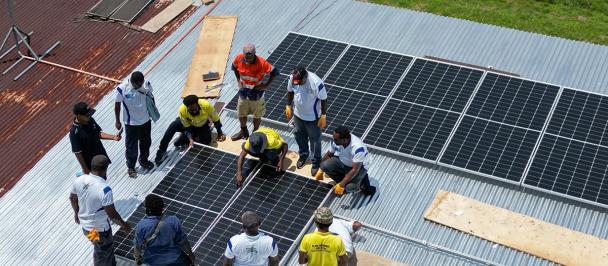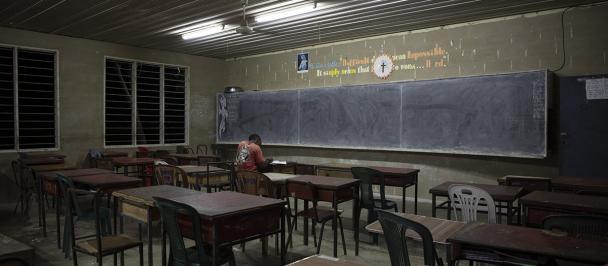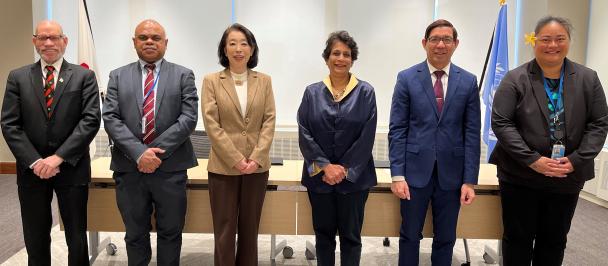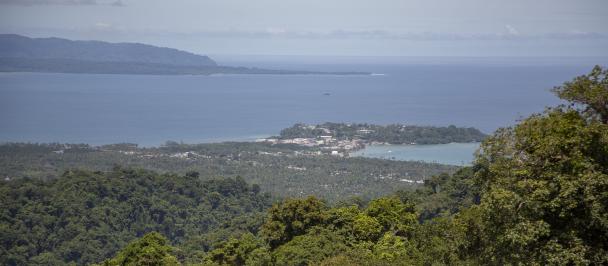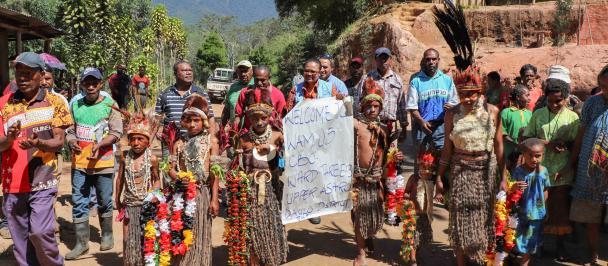Renewable Energy training held at the University of Technology in Lae, Morobe Province
Papua New Guinea is blessed with rich resources of renewable energy. The potential to fully harness sustainable energy is increasing installations of renewable energy systems across the country, with training and education to increase knowledge of solar and clean energy technologies.
Momentum is building in renewables training with commitment and interest growing in Papua New Guinea through rural projects such as the United Nations Development Programme’s European Union-funded ‘Support to Rural Entrepreneurship, Investment and Trade' (STREIT).
This initiative, together with the PNG University of Technology - Sustainable Energy Research Institute, recently conducted successful Renewable Energy Solar rooftop PV Training in Lae, Morobe Province.
The aim of the training was to provide a common platform to build institutional capacity around solar energy and demonstrate the available renewable energy technologies in Papua New Guinea, whilst providing solar rooftop PV training to 16 technical officers from PNG Power Limited.
Expressing appreciation to UNDP for facilitating the training, PNG Power Regional Manager for Momase, Bustin Joseph says it was a vital opportunity for employees in the region, specifically for the Sepik Provinces.
“Especially for our technicians that have come from around the region - Vanimo, Wewak and Aitape, these areas will benefit most from mini-grids, it is important for us to utilize this knowledge and be prepared,” said Mr. Bustin
The training is the next step of UNDP’s implementation of Outcome 2 of the EU-STREIT programme - achieving strengthened climate-resilient and more efficient value chain enablers through the installation of solar PVs in public facilities in the East and West Sepik provinces.
UNDP is delivering Renewable Energy through solar installations in Sandaun Province
In Papua New Guinea the larger population lacks access to grid-connected electricity, facing major daily challenges. Unreliable power supplies affecting delivery of critical services have become the norm, with communities in the provinces suffering the most.
The United Nations Development Programme – under the EU-STREIT programme recently visited several public institutions in Vanimo, Sandaun Province, with the aim to notify and seek consent for the installation of solar photovoltaic systems (Solar PVs).
Three public institutions in the Vanimo-Green District were selected for solar PV system installations: Baro Community Health Post, Don Bosco Secondary School and Vanimo Secondary School.
These facilities suffer from the constant lack of adequate power supply, hindering their ability to run and provide services efficiently.
“At the moment we do not have full time or constant electricity, which affects our ability to provide essential services to our patients – patient care is vital, and with better access to electricity, through use of solar, we can ensure the best health service for the community,” said Officer in Charge of Baro Community Health Post, Mark Bandi.
At the two schools selected, the current source of power usually experiences frequent fluctuations due to the low or weak current. As a result, electronic devices and equipment are damaged, in the long-term, hindering the quality of teaching and learning. At Don Bosco Secondary School, in Vanimo, the Principal Mr Frank Banak said the facility is a technical school, as well as a high school, with many classes requiring the use of high-powered tools and machinery.
“Installing solar power here at the school would be a great advantage and will greatly alleviate these power issues that we have had to deal with repeatedly”.

 Locations
Locations